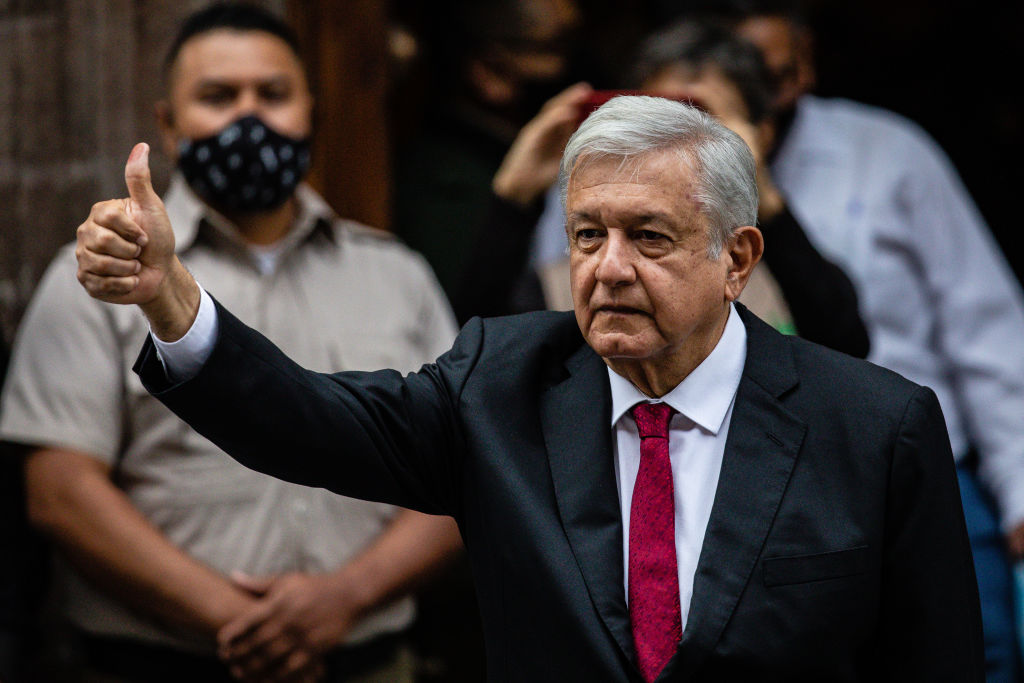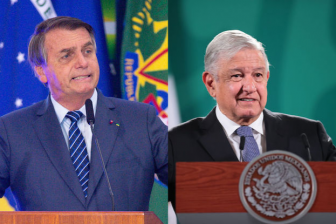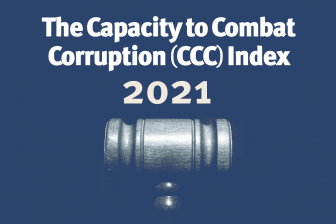Listen to a conversation with the author on the Americas Quarterly Podcast
Mexicans are days away from what President Andrés Manuel López Obrador considers a momentous experience. On Aug. 1, citizens will participate in the country’s first national referendum to decide whether past presidents should be judged for their alleged misdeeds. The fates of Carlos Salinas, Ernesto Zedillo, Vicente Fox, Felipe Calderón and Enrique Peña Nieto will allegedly be determined by the voice of the people.
But what the government has trumpeted as a victory for participatory democracy and an opportunity to combat corruption is a far cry from the sort of transitional justice the country needs. If anything, the referendum will provide López Obrador with the perfect excuse to not delve into the past. The “popular consultation” has been designed to fail.
As a candidate, López Obrador, or AMLO, vowed to create a Truth Commission to deal with entrenched impunity and to provide justice and reparations to victims of human rights violations. He crisscrossed the country, promoting forums to meet with the mothers of Mexico’s disappeared and with the families of those who had suffered abuses at the hands of the military, promising to address their claims. AMLO’s electoral victory in 2018 can be explained by how he capitalized on widespread grievances with what has been called Mexico’s “pact of impunity” — an understood protection enjoyed by the ruling elite. In his presidential campaign, AMLO offered not only a break with the past, but the political will to investigate, punish and repair the damage done by those who had abused their power.
Instead of committing to the mandate given to him at the polls, AMLO has abandoned it and so far, the principal perpetrators of the past have not been held accountable. Had AMLO wanted to investigate how the Odebrecht scandal entangled his predecessor, Enrique Peña Nieto, he could have done so the moment he became president. Had he wanted to probe the military’s role in the disappearance of 43 students in Ayotzinapa, he would have had the legal authority to do so.
Instead of following through on promises of demilitarization, he has proceeded to endow the armed forces with unprecedented political and economic power. Although several of Peña Nieto’s collaborators have been indicted for their involvement in the Odebrecht scandal, the former president himself remains untouched, prompting speculation about a political pact between the two men. Many of the corruption scandals uncovered by the media during Peña Nieto’s term have not been scrutinized, and the attorney general’s office continues to apply a form of selective justice against the government’s designated enemies.
López Obrador has explicitly said that the past should be undisturbed, that he is motivated by forgiveness rather than vengeance and that he himself will not vote in the referendum. But the president’s true goal is not what it seems. By organizing a referendum with an ambiguous, unclear question (one the Mexican Supreme Court worded so as not to be deemed retroactive justice, which would be unconstitutional), AMLO hopes to garner political points for promoting popular participation while seeking political cover for his refusal to truly investigate Peña Nieto and the military’s top ranks. He is well aware that, in order for the result of the referendum to be legally binding, 40% of the electorate must participate — a highly improbable turnout that would amount to 5 million more votes than he received in 2018.
Meanwhile, MORENA, AMLO’s party, is publicizing the referendum as an opportunity to go after former presidents, even though the exercise itself cannot produce such an outcome. MORENA’s campaign suggests that the referendum will lead to former “neoliberal” presidents of the past 30 years being thrown in jail, but AMLO can’t and won’t act to achieve that goal. The law does not provide the president with the latitude to reach this far into the past, and political pacts limit his room to maneuver vis-à-vis Peña Nieto and the military — a group whose support he depends upon. The contradictions evidenced by this farcical process, however, worry neither the president nor his party. The apparent madness is the method.
AMLO’s political strategy has thus become abundantly clear: Distract from the devastating impact of the pandemic, shift attention away from unabated homicide rates and violence, center the public debate on past grievances rather than current problems and then use a doomed referendum to justify the government’s failure to act on corruption. The referendum has been conceived not to investigate, but to hide. It has been constructed not as a path to truth and justice, but as a face-saving mechanism for a president who wants neither.
At the end of the day, AMLO will be able to say that the people spoke and he listened. When the necessary number of votes is not achieved, he will have accomplished three objectives: eluding the creation of a Truth Commission, continuing to protect Peña Nieto and using the state apparatus to pursue discretional and politically motivated charges against his adversaries.
Rather than combatting the impunity of the past to prevent further impunity in the future, the referendum will harm the true rule of law, enabling presidential persecution of some and presidential protection for others. The potentially democratic nature of the process has been vitiated by AMLO’s political pacts and personal goals. What could have been a key step to transitional justice is now little more than a sad simulacrum.








